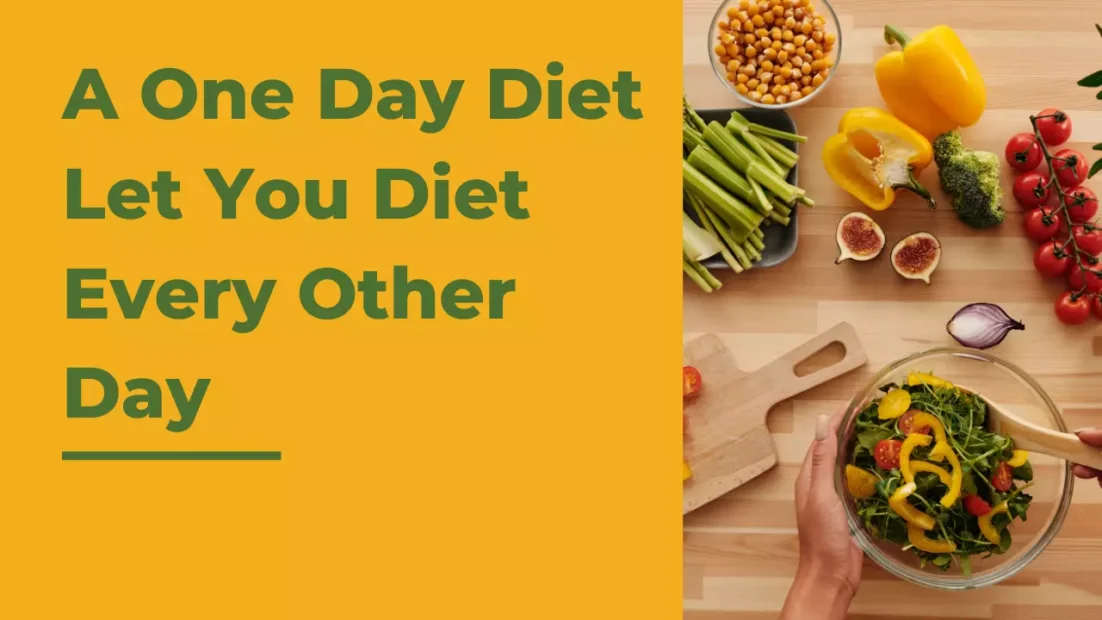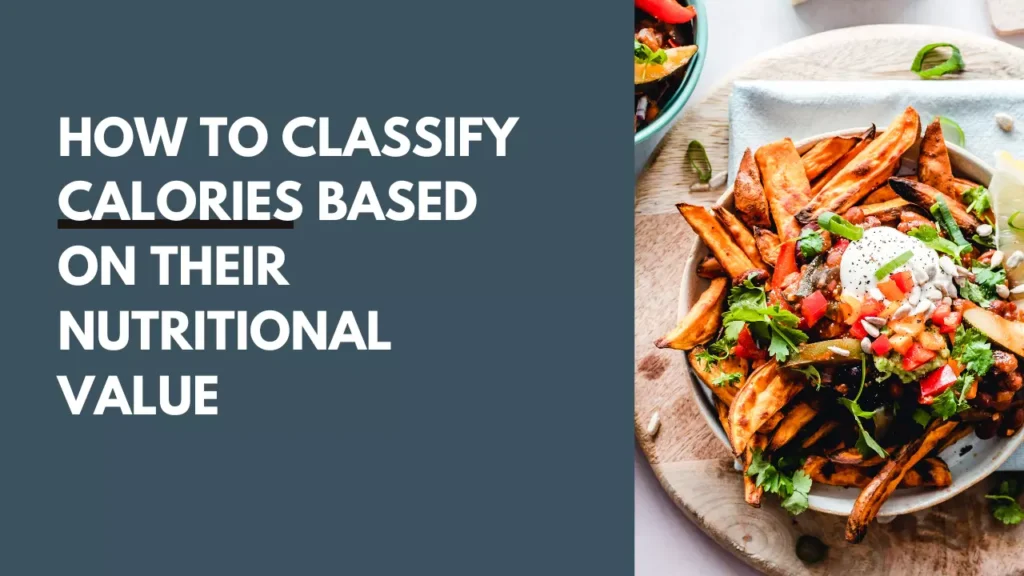
Maintaining a healthy lifestyle often involves making mindful choices about our eating habits. Traditional diets that require strict adherence can be challenging to sustain. However, a novel approach gaining popularity is the “One Day Diet.” This unique strategy allows individuals to diet every other day, providing a more flexible and sustainable way to achieve weight management goals.
Understanding the One-Day Diet
What is the One Day Diet?
The One Day Diet, also known as Alternate-Day Fasting, involves alternating between days of regular eating and days of restricted calorie intake. On dieting days, individuals typically consume about 500-600 calories, while they eat normally on non-dieting days.
How Does it Work?
The concept behind the One Day Diet is rooted in the principle of intermittent fasting. On dieting days, the body enters a calorie deficit, forcing it to utilize stored fat for energy. This alternating cycle aims to promote weight loss without the constant restrictions associated with traditional diets.
Benefits of the One-Day Diet
1. Weight Loss
The primary objective of any diet is often weight loss. The One Day Diet’s cyclical nature keeps the body in a state of calorie deficit, promoting fat loss over time. Studies show that this approach can be as effective as continuous calorie restriction.
2. Improved Metabolism
Contrary to some misconceptions, the One Day Diet does not slow down metabolism. The intermittent fasting aspect may boost metabolic rate, enhancing the body’s ability to burn calories efficiently.
3. Enhanced Insulin Sensitivity
By incorporating regular periods of fasting, the One Day Diet can improve insulin sensitivity. This is crucial for regulating blood sugar levels and reducing the risk of type 2 diabetes.
Getting Started with the One-Day Diet
1. Plan Your Dieting Days
To successfully implement the One Day Diet, plan your dieting days. Choose days that align with your schedule and activities, making it easier to stick to the restricted calorie intake.
2. Focus on Nutrient-Dense Foods
On dieting days, prioritize nutrient-dense foods to ensure you meet your body’s essential needs despite the calorie restriction. Include plenty of vegetables, lean proteins, and healthy fats to maintain overall well-being.
3. Stay Hydrated
Proper hydration is key on both dieting and non-dieting days. Drinking water helps control hunger and supports overall health. Aim to consume at least eight glasses of water daily.
Overcoming Challenges
1. Dealing with Hunger Pangs
Hunger can be a challenge on dieting days. Combat this by incorporating low-calorie, high-volume foods, such as salads and soups, to help you feel full without exceeding your calorie limit.
2. Listen to Your Body
It’s essential to listen to your body’s signals. If you find the One Day Diet too restrictive, consider adjusting the calorie intake on dieting days or exploring alternative approaches that suit your individual needs.
3. Be Patient and Consistent
Like any lifestyle change, results may take time. Be patient and stay consistent with the One Day Diet. Sustainable weight management is a gradual process that requires dedication.
Expert Opinions on the One-Day Diet
1. Nutritionist’s Perspective
Nutritionists acknowledge the potential benefits of the One Day Diet, emphasizing the importance of balance on non-dieting days. They recommend consulting with a professional to ensure adequate nutrient intake.
2. Fitness Trainer’s Viewpoint
Fitness trainers often endorse the One Day Diet for its simplicity and flexibility. They highlight the positive impact on metabolism and encourage combining it with regular exercise for optimal results.
One-Day Diet vs. Traditional Diets
1. Flexibility and Sustainability
Unlike rigid diets that may lead to feelings of deprivation, the One Day Diet offers flexibility. Knowing you can indulge in regular eating every other day makes it more sustainable in the long run.
2. Psychological Benefits
Traditional diets can take a toll on mental health due to constant restrictions. The One Day Diet provides psychological relief by allowing individuals to enjoy their favorite foods regularly.
3. Adherence and Long-Term Success
The One Day Diet’s less stringent approach often results in higher adherence rates compared to traditional diets. This adherence contributes to long-term success in maintaining a healthy weight.
One Day Diet Recipes
1. Low-Calorie Smoothie Bowl
- Ingredients:
- 1 cup frozen berries
- 1/2 banana
- 1/2 cup Greek yogurt
- 1 tablespoon chia seeds
- 1/2 cup almond milk
- Instructions:
- Blend berries, bananas, Greek yogurt, and almond milk until smooth.
- Pour into a bowl and top with chia seeds.
2. Grilled Chicken Salad
- Ingredients:
- 4 oz grilled chicken breast
- Mixed salad greens
- Cherry tomatoes
- Cucumber slices
- Olive oil and balsamic vinegar dressing
- Instructions:
- Combine grilled chicken, salad greens, cherry tomatoes, and cucumber.
- Drizzle with olive oil and balsamic vinegar dressing.
The One Day Diet presents a refreshing and effective alternative to traditional diets, offering a sustainable way to achieve weight management goals. By embracing the flexibility of intermittent fasting, individuals can enjoy the benefits of weight loss, improved metabolism, and enhanced overall health. Remember, the key to success lies in planning, consistency, and listening to your body’s signals. As with any significant lifestyle change, it’s advisable to consult with healthcare professionals or nutrition experts to ensure the One Day Diet aligns with your individual needs and health status.
FAQs
Q1: What is the One Day Diet, and how does it differ from other diets?
The One Day Diet, also known as Alternate-Day Fasting, involves alternating between days of regular eating and days of restricted calorie intake. Unlike traditional diets, it offers flexibility by allowing individuals to consume a normal diet every other day, making it more sustainable in the long run.
Q2: Will the One Day Diet slow down my metabolism?
No, the one-day diet is not associated with a slowdown in metabolism. Intermittent fasting, a key component of this diet, may boost metabolic rate, enhancing the body’s ability to burn calories efficiently.
Q3: How many calories should I consume on dieting days?
On dieting days, individuals typically consume about 500-600 calories. It’s essential to focus on nutrient-dense foods to meet the body’s essential needs despite the calorie restriction.
Q4: Can I exercise on dieting days?
Yes, moderate exercise is generally permissible on dieting days. However, it’s crucial to listen to your body and adjust your activity level accordingly. Staying hydrated is also important during both exercise and dieting days.
Q5: Will I feel hungry on dieting days?
It’s common to experience hunger on dieting days. To combat this, incorporate low-calorie, high-volume foods, such as salads and soups, to help you feel full without exceeding your calorie limit.
Q6: Is the One Day Diet suitable for everyone?
While many individuals find success with the One Day Diet, it’s essential to consider individual health conditions and consult with healthcare professionals or nutrition experts before embarking on any significant dietary changes.
Q7: Can I customize the One Day Diet to suit my preferences?
Yes, the One Day Diet is adaptable. If you find it too restrictive, consider adjusting the calorie intake on dieting days or exploring alternative approaches that align with your individual needs and preferences.
Q8: Will I still see results if I occasionally deviate from the diet?
Consistency is key to seeing results with the One Day Diet. While occasional deviations are normal, striving for adherence to the alternating cycle will contribute to long-term success in achieving weight management goals.
Q9: Are there any specific health concerns associated with the One Day Diet?
While the One Day Diet is generally considered safe for many individuals, those with pre-existing health conditions should consult with healthcare professionals before starting this or any new diet. It’s crucial to prioritize overall health and well-being.
Q10: Can I incorporate the One Day Diet into a vegetarian or vegan lifestyle?
Absolutely. The One Day Diet can be adapted to various dietary preferences, including vegetarian and vegan lifestyles. Focus on plant-based nutrient-dense foods on both dieting and non-dieting days to ensure balanced nutrition.



